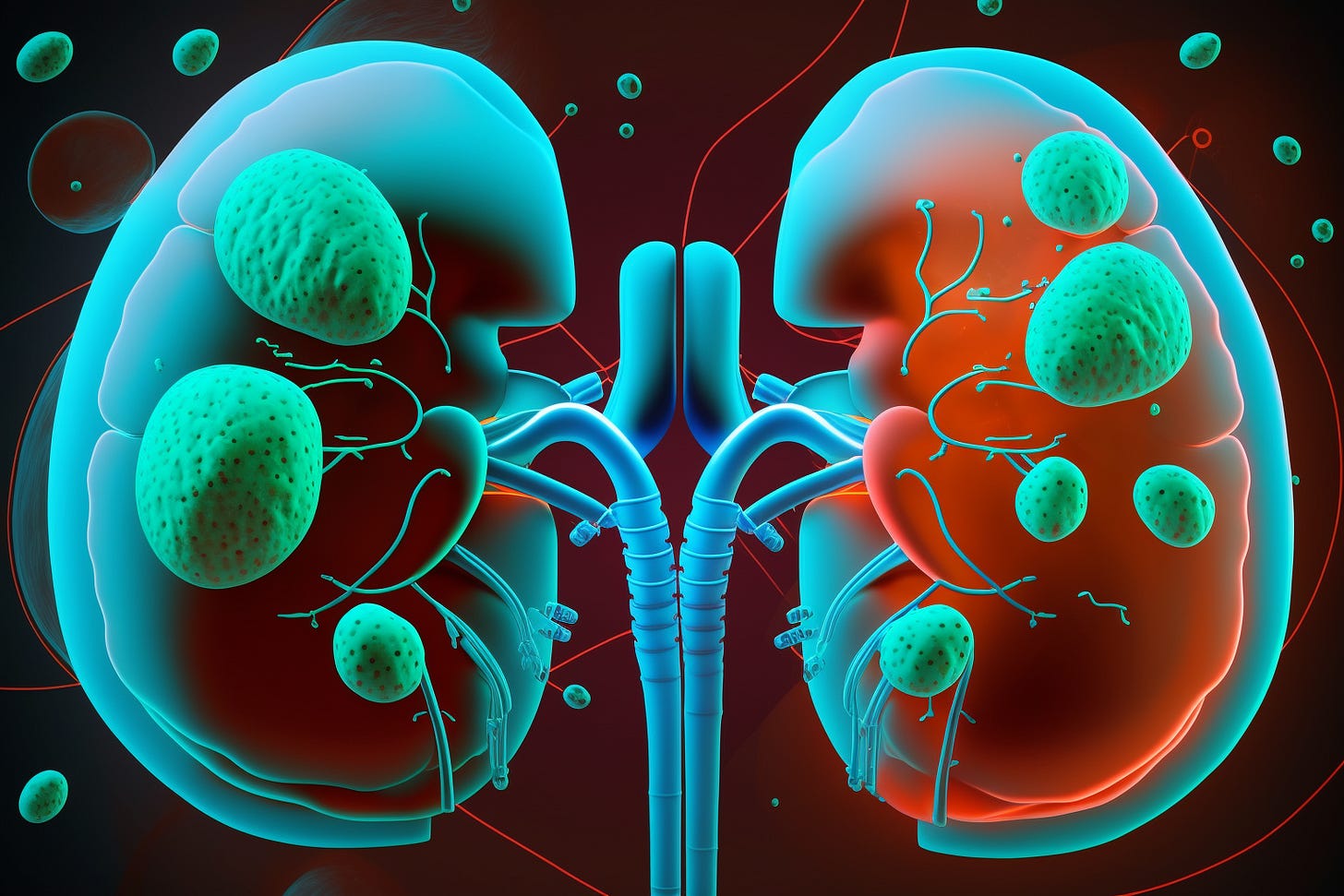What is Kidney Disease
Understanding Kidney Disease: Causes, Symptoms, and Treatment Options for Optimal Kidney Health
Kidneys play an important role in maintaining the right balance of electrolytes, hormones, phosphorus, calcium, and metabolism acidity levels our bodies need as they filter out waste products, metabolic solutes, excess minerals, and toxins. Kidney disease, also known as nephropathy or renal failure, is a medical condition in which the kidneys are no longer able to function properly. The two main types of kidney diseases are chronic and acute. Chronic kidney disease (CKD) refers to an irreversible decline over time that can eventually lead to total organ malfunction if left untreated; while acute kidney injury (AKI), previously known as Acute Renal Failure (ARF), is usually reversible with proper treatment and care.
The most common cause for both CKD and AKI is high blood pressure or diabetes mellitus – referred to collectively as “chronic conditions” due to their long term effects on health. Other causes include autoimmune disorders such as lupus, congenital defects present at birth, inherited genetic abnormalities like polycystic kidney disorder, and urinary tract infections caused by bacteria entering through contaminated water sources from outside the body system.
Most people are unaware of the risks associated with kidney disease and its devastating effects. Kidney disease can cause a slew of health problems, including anemia, high blood pressure, proteinuria (excessive levels of protein in urine), fatigue, fluid retention and even death. Fortunately there are several steps you can take to reduce your risk for developing this serious condition:
1) Control Your Blood Pressure: High blood pressure is one major factor that increases your risk for kidney failure or damage over time. Work with your doctor to monitor it regularly using medications if necessary as recommended. Engage in activities such as yoga, walking, running, etc. which help to lower blood pressure naturally along with taking prescribed medicines.
2) Maintain A Healthy Weight: Being overweight has been linked to multiple different kinds of chronic diseases, including kidney disease; so try not only to eat a healthy diet but also make sure that you’re exercising frequently to stave off unhealthy weight gain.
3) Avoid Smoking And Excess Alcohol Consumption: Cigarette smoking affects every organ system throughout the body – especially the kidneys. Excess alcohol consumption causes dehydration which further adds stress on these organs. This increases your chances of renal dysfunction due to an accumulation of harmful toxins from cigarettes.
4) Monitor Diabetes Carefully: Uncontrolled diabetes leads to problems like pregestational diabetes mellitus (GDM) or gestational hypertension/preeclampsia resulting in diabetic nephropathy. This can lead to a reduction in creatinine clearance which results in irreversible damages. Regular monitoring through medical tests is essential when dealing with diabetic patients. Aiming for prevention is always better than looking for a cure.
5) Stay Hydrated: Drinking enough water helps flush out toxins from our bodies allowing our kidneys to do their job properly while regulating electrolyte balance in bloodstreams and avoiding acidosis and other related conditions which are caused due to inadequate amounts of the liquid element found in the body.
Treatment for kidney disease depends on its underlying cause as well as how far it has progressed. The goal of treatment is to prevent further damage and reduce symptoms such as high blood pressure, anemia, swelling (edema), fatigue, urine abnormalities and proteinuria (protein in urine).
The first step in treating kidney disease involves identifying any underlying conditions that could be causing it such as diabetes mellitus or hypertension (high blood pressure). If these are found then they must be managed accordingly before starting treatments specifically aimed at managing renal failure itself. This may include lifestyle modifications like smoking cessation or reducing salt intake if needed along with medications which work to control specific risk factors associated with chronic kidney diseases including ACE inhibitors like lisinopril/captopril etc., angiotensin receptor blockers (ARBs) drugs like losartan potassium/irbesartan etc., diuretics and calcium channel blocker medicines.
In advanced stages, dialysis might need to be considered. Dialysis uses a machine to help cleanse toxins out of the bloodstream through either hemodialysis or peritoneal dialysis depending upon the patient's needs and requirements, respectively. Renal transplantation would also remain one viable option here depending upon the availability of donor organs and recipient matching criteria. Last but not least, nutritional interventions form an integral part of treatment regimens particularly among patients suffering from end stage renal failures. Dietary changes are made according to an individual's serum levels and liquid intakes adjusted based upon electrolyte balances maintained so as to ensure optimal nutrition requirement fulfillment without complications arising due to an excessive accumulation of fluids inside individual systems.
With kidney disease, we should always aim for prevention rather than a cure because once established, kidney disease requires lifelong management even after successful treatment plans have been achieved. Relapses occur regularly, especially among those who have a preexisting history. The utmost care must be taken during regular health checkups along with the maintenance of healthy lifestyles.




